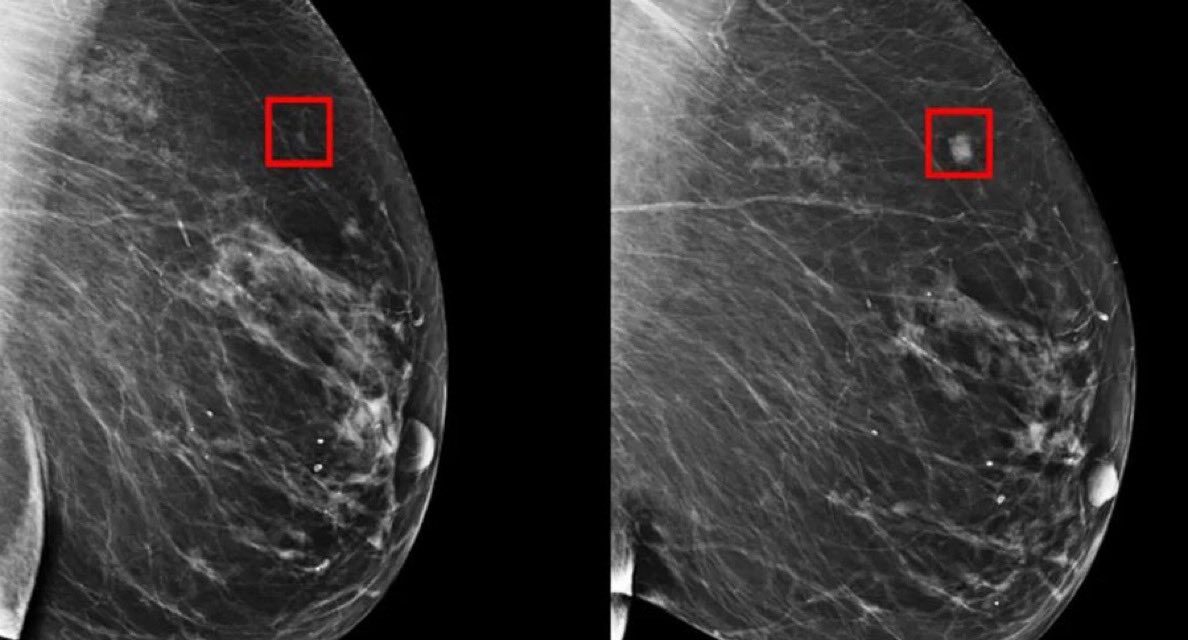Breast cancer remains a significant health risk for women worldwide, with one in eight cases turning invasive and one in 39 women succumbing to the disease. Despite advances in medical science that have improved survival rates, early detection remains crucial for effective treatment and better outcomes.
Industrialist Anand Mahindra recently highlighted a groundbreaking development in breast cancer detection on his social media platform, X. He shared a post about an artificial intelligence system named AsymMirai, which has demonstrated the capability to predict breast cancer up to five years before traditional methods. This study, detailing AsymMirai’s achievements, has been published in the esteemed scientific journal Radiology.
As reported by Medscape, AsymMirai represents a significant advancement in breast cancer detection technology. Unlike previous models, which often function as “black boxes,” providing answers without explaining their decision-making process, AsymMirai offers transparency in its operations. The system observes and compares changes in the breast tissue of the left and right breasts to detect early signs of cancer.
Jon Donnelly, a PhD student in the Department of Computer Science at Duke University and the first author of the research paper, emphasized the importance of this transparency. “With traditional AI, you ask it a question and it spits out an answer, but no one really knows how it makes its decisions. It’s a black box,” Donnelly explained. “With our approach, people know how the algorithm comes up with its output so they can fact-check it and trust it.”
The research, conducted by a team at Duke University along with other collaborators, has shown promising results. AsymMirai was able to identify twice as many future breast cancer cases as the widely used Tyrer-Cuzick risk calculator. Furthermore, the AI’s effectiveness was consistent across diverse patient groups, including minority communities. This inclusivity addresses a critical gap in medical research, where the exclusion of minority groups can lead to inaccuracies in clinical guidelines and risk assessments.
“We found that we can, with surprisingly high accuracy, predict whether a woman will develop cancer in the next 1-5 years based solely on localized differences between her left and right breast tissue,” Donnelly stated, as reported by Medscape.
The introduction of AsymMirai could revolutionize breast cancer screening and early detection, providing a more reliable and inclusive tool for predicting the onset of the disease. This advancement not only underscores the potential of AI in medical diagnostics but also offers hope for millions of women worldwide in the fight against breast cancer.











